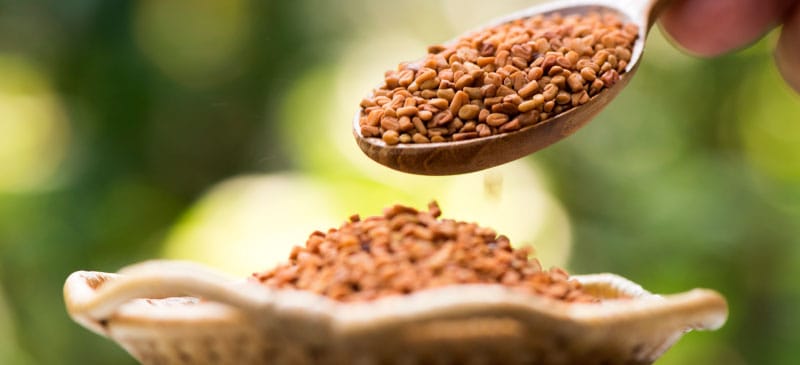This Dr. Axe content is medically reviewed or fact checked to ensure factually accurate information.
With strict editorial sourcing guidelines, we only link to academic research institutions, reputable media sites and, when research is available, medically peer-reviewed studies. Note that the numbers in parentheses (1, 2, etc.) are clickable links to these studies.
The information in our articles is NOT intended to replace a one-on-one relationship with a qualified health care professional and is not intended as medical advice.
This article is based on scientific evidence, written by experts and fact checked by our trained editorial staff. Note that the numbers in parentheses (1, 2, etc.) are clickable links to medically peer-reviewed studies.
Our team includes licensed nutritionists and dietitians, certified health education specialists, as well as certified strength and conditioning specialists, personal trainers and corrective exercise specialists. Our team aims to be not only thorough with its research, but also objective and unbiased.
The information in our articles is NOT intended to replace a one-on-one relationship with a qualified health care professional and is not intended as medical advice.
Fenugreek Benefits for the Gut, Testosterone Levels & More
July 5, 2023

Never heard of fenugreek? This medicinal herb helps reduce both internal and external inflammation, and it includes many health benefits when used regularly.
As noted in the book “Essential Oils in Food Preservation, Flavor and Safety,” fenugreek extract and oil are known to possess antimicrobial, antioxidant, antidiabetic and antitumorigenic activities.
Learn more about what fenugreek is and how it can be used.
What Is Fenugreek?
Fenugreek is an annual herb with light green leaves and small white flowers. It’s part of the pea family (Fabaceae) and also known as Greek hay (Trigonella foenum-graecum).
Cultivated in North Africa, the Middle East, Egypt and India, it has a long history as an ingredient in traditional medicine. Fenugreek plants grow to about two to three feet tall, and the seed pods contain 10–20 small, flat, yellow-brown, pungent and aromatic seeds.
Fenugreek seeds have a somewhat bitter taste, similar to celery, maple syrup or burnt sugar, and are often used to make medicine. However, it has a far more pleasant taste when cooked.
The graecum seeds, which are usually dried and ground, are the most widely used part of fenugreek. The leaves are often used in cooking as well.
Fenugreek can be taken by mouth or used to form a paste that’s applied to the skin to help heal inflammation. In manufacturing, fenugreek extracts can be found in soaps and cosmetics.
The fenugreek herb acts as a gum and an emulsifier, making it useful as a stabilizer as well as thickening agent for food. It’s also used as a spice and flavoring agent in food preparation.
Nutrition Facts
One serving — 1 tablespoon — of fenugreek seeds contains:
- 35.5 calories
- 6.4 grams carbohydrates
- 2.5 grams protein
- 0.7 gram fat
- 2.7 grams fiber
- 3.7 milligrams iron (20 percent DV)
- 0.1 milligram manganese (7 percent DV)
- 0.1 milligram copper (6 percent DV)
- 21 milligrams magnesium (5 percent DV)
- 32.6 milligrams phosphorus (3 percent DV)
- 0.1 milligram vitamin B6 (3 percent DV)
Health Benefits
While more research is needed in terms of identifying and confirming all of the plant’s benefits, this herb has been shown to help with numerous health issues. Here are nine of the most proven fenugreek benefits.
1. Can Improve Digestive Problems and Cholesterol Levels
This herb may help with numerous digestive problems, such as upset stomach, constipation and inflammation of the stomach. For instance, research shows that the water-soluble fiber in fenugreek, among other foods, helps relieve constipation.
It also works to improve digestion and is often incorporated in an ulcerative colitis diet treatment plan due to its anti-inflammatory effects. This herb appears to benefit those with heart conditions, such as hardening of the arteries and high blood levels of certain fats, including cholesterol and triglycerides.
It also shows potential for helping those who are diabetic. In fact, a study out of India showed that administering 2.5 grams of fenugreek supplement twice daily for three months to people dealing with non-insulin-dependent diabetes mellitus significantly lowered cholesterol naturally, along with triglycerides, without affecting HDL cholesterol.
2. Combats Inflammation Inside the Body
Fenugreek helps with inflammation within the body, which is responsible for health issues and diseases like:
- Mouth ulcers
- Boils
- Bronchitis
- Infection of the tissues beneath the surface of the skin
- Tuberculosis
- Chronic coughs
- Cancer
- Kidney ailments
In addition to its potential preventative effects with these conditions, this herbal remedy is thought to lower blood sugar and may be useful for many conditions, including management of metabolic and nutritive disorders, such as diabetes. A 2017 study concluded that “a simple complementary addition of fenugreek seeds can have a synergistic effect along with diet control and exercise on fasting blood glucose.”
For the study, patients with type 2 diabetes received 10 grams of the seeds soaked in hot water every day.
Fenugreek appears to slow absorption of sugars in the stomach and stimulate insulin. In Traditional Chinese Medicine, the spice is known as a “phlegm mover” and is said to break up stuck energies and cool inflammation within the body.
Research published in International Immunopharmacology studied the anti-inflammatory and antioxidant effects of fenugreek mucilage on arthritic rats and confirmed its power to fight inflammation. It also “demonstrated the potential beneficiary effect of fenugreek mucilage on adjuvant induced arthritis in rats,” meaning this herb may be an effective natural arthritis treatment as well.
3. Helps Increase Libido in Men
Some fenugreek uses for men include treating hernias, erectile dysfunction and other male problems, such as baldness. That’s because it may increase sexual arousal and testosterone levels.
While it’s best to consult with a physician before using natural therapies for treating disease or improving sexual performance, fenugreek seed powder, fenugreek tea and tablets have been shown to increase sexual desire and performance in men, as well as naturally remedy impotence.
In a study published in Phytotherapy Research, 60 men between the ages of 25 and 52 years with no history of erectile dysfunction were supplemented with either a placebo or 600 milligrams of fenugreek extract per day for six weeks.
Through self-evaluation, the participants noted their results with fenugreek, reporting that the fenugreek dietary supplement had a positive effect on their libidos. Ultimately, the study found that fenugreek extract had a significant influence on sexual arousal, energy and stamina and helped participants maintain normal testosterone levels.
4. Promotes Milk Flow in Breastfeeding
Fenugreek also helps breastfeeding women who may experience low milk supply. It can increase breast milk production because it acts as a galactagogue.
Galactagogues are substances that help with increasing milk supply. They stimulate the milk ducts and can increase milk production in as little as 24 hours.
While more research is needed to determine the exact efficacy and safety of fenugreek for increased breast milk production, several studies in scientific journals note its use in promoting milk flow.
Although this is a potential fenugreek seeds benefit for women, researchers generally recommend that seeking help from a lactation consultant should be your first course of action if you’re having issues with breast milk production.
5. Helps Treat Wound, Skin and Scalp Issues
In addition to lowering internal inflammation, fenugreek is sometimes warmed and used externally as a poultice. Research indicates that this reduces external inflammation and can treat:
- Pain and swelling in the muscles and lymph nodes
- Gout
- Wounds
- Leg ulcers
- Sciatica
- Dandruff
- Eczema
It’s important to test the area first to ensure that it does not burn or further inflame the area, however.
There are also fenugreek benefits for hair. Although research is limited, anecdotal reports suggest that fenugreek tea and fenugreek seed powder can be used on your hair to promote hair growth and improve texture.
6. Adds Flavor and Spice to Food
In foods, fenugreek powder is often included as an ingredient in spice blends, mostly found in Indian fare, such as curried dishes. It’s also used as a flavoring agent in imitation maple syrup, foods, beverages and tobacco.
In addition, fenugreek leaves can be used in salads, and both fresh and dried leaves are used in Indian cookery.
7. Helps Increase Appetite
Beyond enhancing flavor, fenugreek has been shown to increase appetite, which results in restorative and nutritive properties.
A study published in Pharmacology, Biochemistry, and Behavior was designed to investigate the effects of a fenugreek seed extract on feeding behavior. Experiments were performed to determine food consumption and motivation to eat, as well as metabolic-endocrine changes.
The results showed that chronic oral administration of the fenugreek extract significantly increased food intake and the motivation to eat. The report also indicated, however, that the treatment does not prevent anorexia nor the decreased motivation to eat.
8. May Enhance Exercise Performance
The Journal of Sports Science and Medicine reports a study on the effects of combined creatine and fenugreek oil supplementation on strength and body composition in men.
Forty-seven resistance-trained men were divided into two groups according to body weight. Each group then took either 70 grams of a dextrose placebo, five grams of creatine and 70 grams of dextrose, or 3.5 grams of creatine and 900 milligrams of fenugreek extract and participated in a four-day-a-week periodized resistance-training program for eight weeks.
Body composition, muscular strength endurance and anaerobic capacity of participants were tested. The creatine/fenugreek group showed significant increases in lean mass, bench press and leg press strength.
The study concluded that creatine combined with fenugreek extract supplementation had a significant impact on upper body strength and body composition as effectively as the combination of creatine with dextrose.
Why is this good? The use of fenugreek with creatine supplementation may be an effective means for enhancing creatine uptake while eliminating the need for excessive amounts of simple carbohydrates, so you may want to consider adding fenugreek for men and women to your list of the best pre-workout foods.
9. Helps Improve Blood Sugar
A clinical trial showed that ingestion of fenugreek seeds soaked in hot water shows promise as a complementary therapy in the treatment of type 2 diabetes.
Over the course of eight weeks, 11 out of a total of 18 participants consumed fenugreek seeds soaked in hot water, and the remaining seven consumed fenugreek seeds mixed with yogurt. The participants who consumed the seeds soaked in hot water showed significant improvement in blood glucose levels compared with the group that ate the seeds mixed with yogurt.

Uses and Dosage
Fenugreek has a long history as both a culinary and medicinal herb in the ancient world. Fenugreek seed is commonly used in cooking and as a folk or traditional remedy for diabetes and loss of appetite, as well as to stimulate milk production in breastfeeding women.
It’s also applied to the skin and hair to reduce inflammation.
Here are some of the most common fenugreek, including as a supplement, uses:
- Exercise performance: Although there is mixed research on fenugreek for testosterone levels, supplementing with the plant for eight weeks may improve exercise performance and decrease body fat. In one study, 60 healthy male subjects took 300 milligrams of fenugreek twice daily for eight weeks. Fenugreek supplementation combined with resistance training showed significant anabolic and androgenic activity as compared with the placebo.
- Breast milk production: Fenugreek supplements or tea may help boost breast milk production, especially in the days immediately following child birth. A common dosage is 2 to 3 capsules (around 600 milligrams per capsule) three or four times per day.
- Digestion: Fenugreek tea, seed powder or supplements may help aid digestive issues like constipation, upset stomach and loss of appetite.
- Inflammation: Fenugreek extract can be applied topically as a poultice to reduce inflammation and pain.
- Cholesterol: Although there is mixed evidence, using fenugreek seed powder or supplements may help reduce high cholesterol levels.
- Skin health: Fenugreek oil or seed powder can be used topically to improve skin health and reduce inflammatory disease symptoms.
- Hair health: To use as an herbal remedy for your hair, combine fenugreek seed powder with coconut oil or aloe vera and massage the mixture into your scalp. Let it sit for five minutes and then rinse.
Risks, Side Effects and Interactions
There are a few possible fenugreek side effects. When taken by mouth, it may cause gas, bloating and diarrhea, and there’s the risk of allergic reactions that can cause coughing, wheezing and swelling.
It also can cause irritation when applied directly to the skin, so always test a small area first.
Even though it has been used for inducing childbirth, women should always use caution when taking fenugreek during pregnancy. Make sure you talk to your health care provider about it prior to use.
It’s also important to note that fenugreek could cause harmful effects and interactions that can thin the blood and cause excessive bleeding in some people. Those with underlying bleeding disorders or who take blood-thinning drugs or anticoagulants should not take it without their doctors’ approval.
Signs of problematic interactions, like excessive bleeding, include easy bruising, vomiting blood or passing dark stools.
There may also be interactions with people who have diabetes because fenugreek can lower blood sugar levels and interact with diabetes drugs.
Final Thoughts
- Fenugreek is an herbal remedy that’s been used in folk medicine for a range of health conditions. Today, people supplement with the seeds and leaves of the plant to reduce high cholesterol, improve libido, increase beast milk production and more.
- Herbal fenugreek may also help to prevent or fight inflammatory disease and issues related to digestion and high blood sugar.
- There are some possible side effects and interactions from this herbal remedy. It should not be taken during pregnancy unless advised by a doctor. It may also interact with blood-thinning medications and drugs for diabetes.










